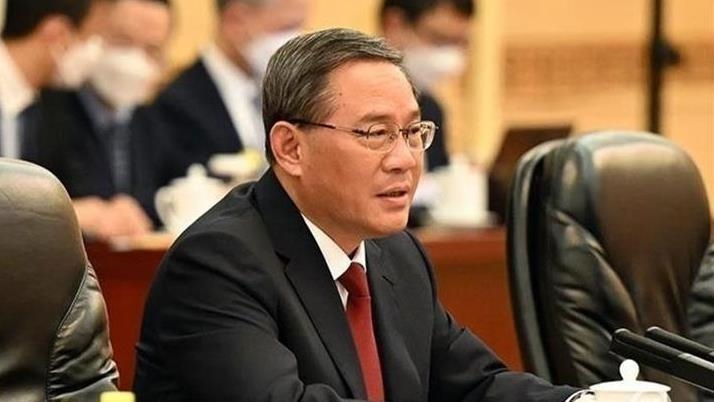China, Egypt to Skip US Influence, Strengthen Ties
The visit and the summit come at a critical moment for global economic uncertainty, with China and Egypt aiming to elevate their ties and the BRICS nations discussing de-dollarization, while the US watches closely, amid concerns about the group's value and China's commitment to it.

Chinese Premier Li Qiang will visit Egypt on July 9-10, aiming to elevate bilateral ties to a "community with a shared future" and expand defense cooperation, amidst China's absence from the BRICS summit in Brazil.
The two-day official visit comes as China and Egypt enjoy "robustic bilateral ties" with annual trade of around $14 billion, making China one of Egypt's top commercial partners. The joint air force drill in April highlights the growing defense cooperation between the two nations. Meanwhile, Chinese leader Xi Jinping's absence from the BRICS summit in Brazil has sparked concerns about the group's value and China's commitment to it.
The BRICS summit, attended by leaders such as Indian Prime Minister Narendra Modi and South African President Cyril Ramaphosa, will focus on advancing priorities like shoring up energy ties and promoting the use of China's offshore and digital currency for trade within the group. The US will be watching how the countries discuss de-dollarization, with some members pushing for a move away from the US dollar.
The absence of Chinese President Xi Jinping and Russian President Vladimir Putin from the BRICS summit has raised questions about their commitment to the group, which has been seen as a key player in the emerging multipolar world order. However, experts believe that China's absence does not mean it has downgraded the significance it places on BRICS, but rather indicates a strategic move to focus on other priorities.
As China and Egypt strengthen their ties, the global economic uncertainty and the BRICS summit's discussions on de-dollarization will be closely watched. The outcome of the summit and China's engagement with Egypt will have significant implications for the emerging multipolar world order and the future of global governance.